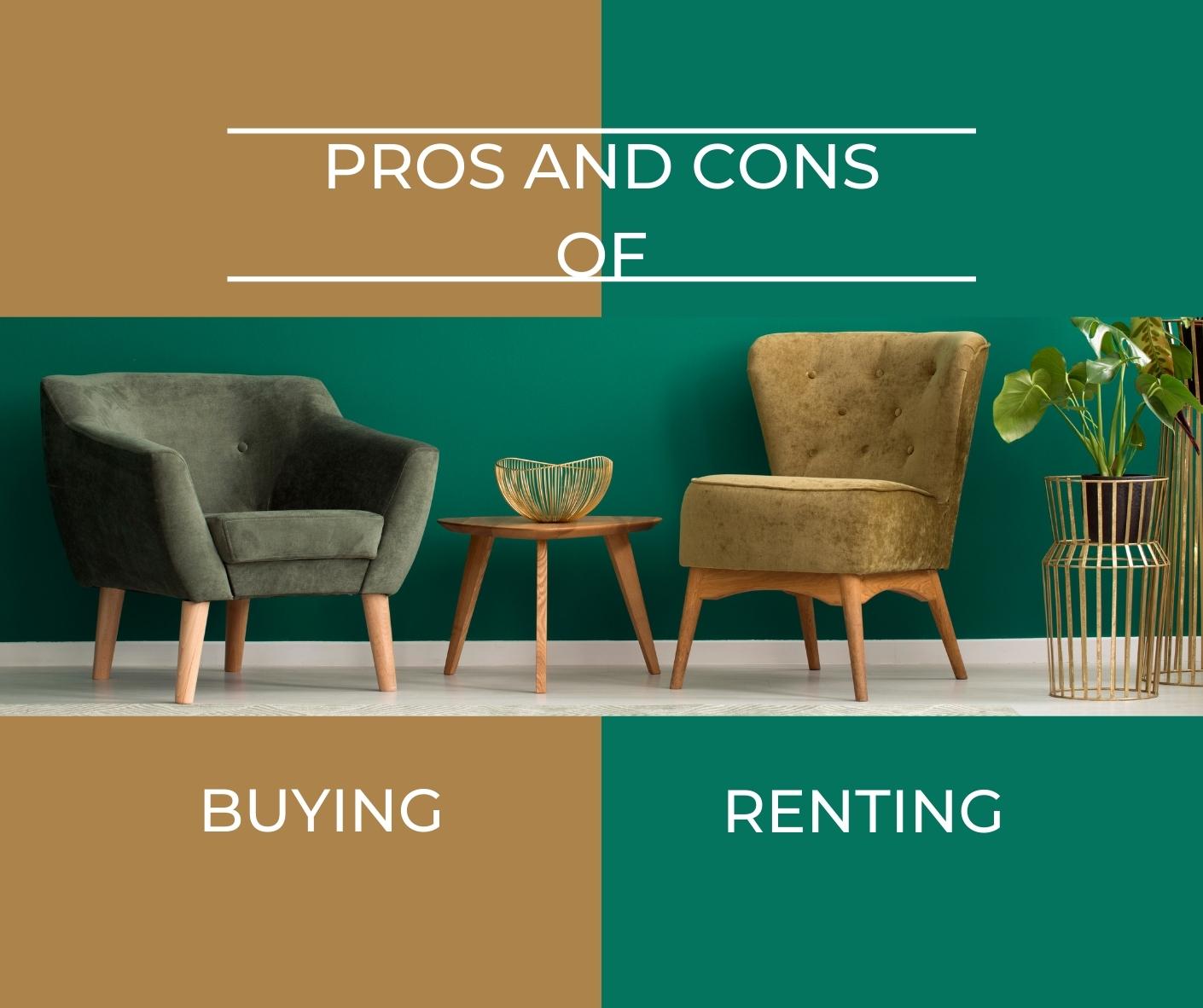One of the significant decisions in life is choosing between renting and buying a property. Whether it’s a house, an apartment, or a condominium, the choice between renting and buying has long-term implications for your finances and lifestyle. Each option comes with its own set of advantages and disadvantages, and understanding them is crucial for making an informed decision. In this blog, we will delve into the pros and cons of renting versus buying a property, helping you weigh the options effectively.
Pros of Renting:
Flexibility and Mobility:
Renting provides flexibility and mobility, as leases typically have shorter durations. If you anticipate the need to move frequently due to work or personal reasons, renting offers the freedom to do so without the burdens of selling a property. You have the flexibility to relocate to different neighborhoods or cities more easily.
Lower Initial Costs:
Renting generally requires less upfront costs compared to buying. Renters usually pay a security deposit and a few months’ rent in advance. On the other hand, purchasing a property involves a substantial down payment, closing costs, and potential fees for inspections, appraisals, and real estate agents.
Minimal Maintenance Responsibilities:
One of the advantages of renting is that the landlord is typically responsible for property maintenance and repairs. As a renter, you are often not responsible for major repairs, such as replacing a broken appliance or fixing structural issues. This can save you both time and money.
Cons of Renting:
Lack of Equity and Investment:
When you rent a property, you do not build equity or have the potential for appreciation. Instead of investing in your property, you are essentially paying someone else’s mortgage. Over time, renting may result in missed opportunities to build wealth through property ownership.
Limited Control and Personalization:
Renting restricts your ability to make significant changes or renovations to the property. You may not have the freedom to paint the walls, install certain fixtures, or make modifications according to your preferences. The lack of control over the living space can be a downside for those who desire creative freedom or personalization.
Rent Increases and Instability:
Rent prices can increase over time, subject to market conditions and landlord decisions. This lack of price stability can make it challenging to budget for the long term. Additionally, landlords may choose not to renew your lease or may decide to sell the property, leading to potential instability and the need to find a new place to live, often with no more than 30 days warning.
Pros of Buying:
Building Equity and Potential Appreciation:
Buying a property allows you to build equity as you pay down your mortgage. Homeownership offers the potential for long-term financial benefits through property appreciation. If the real estate market is favorable, your property’s value may increase over time, providing you with a valuable asset.
Stability and Control:
Owning a property provides a sense of stability and control over your living environment. You have the freedom to modify and customize your home according to your preferences. Additionally, you are not subject to the uncertainties of lease renewals or rental market fluctuations.
Tax Benefits and Investment:
Homeownership comes with potential tax advantages, such as deducting mortgage interest and property taxes. These tax benefits can reduce your overall tax liability. Moreover, owning a property can be seen as a long-term investment, allowing you to potentially leverage your property for future financial endeavors.
Challenges of Buying:
High Initial Costs and Financial Commitment:
Buying a property requires a substantial upfront investment, including a down payment, closing costs, and other associated fees. This financial commitment can be a significant barrier for first-time buyers or individuals with limited savings. It’s essential to carefully assess your financial situation before committing to homeownership. Yet, those who can get past this hurdle build wealth in the long run!
Maintenance and Responsibility:
As a homeowner, you are responsible for the maintenance and repairs of the property. This includes routine maintenance tasks, such as lawn care and fixing appliances, as well as unexpected repairs, which can be costly and time-consuming. The responsibility for property upkeep can add to your overall expenses and workload.
Limited Flexibility and Selling Challenges:
Compared to renting, owning a property reduces your flexibility to move or relocate easily. Selling a property can be a lengthy and complex process, and market conditions may affect the time and price at which you can sell. If you anticipate the need for frequent relocation or have an uncertain future, buying may not be the ideal option. Yet, if you do find you need to relocate quickly, The Temple Team can help guide you on how to get the most money out of your home in the shortest amount of time, and can help you find a reputable agent to work with on finding your next home anywhere across the U.S., or even via our global connections for international moves!
Choosing between renting and buying a property is a personal decision that depends on various factors, including your financial situation, lifestyle, and long-term goals. Renting offers flexibility and reduced upfront costs, while buying provides stability, potential investment returns, and the opportunity to build equity. By considering the pros and cons outlined in this blog, you can make a more informed decision that aligns with your unique circumstances and priorities. If you’re ready and able to start building wealth for yourself instead of your landlord, The Temple Team is ready to get you started on your journey to homeownership! You can reach us at 704-235-3000 or [email protected].





